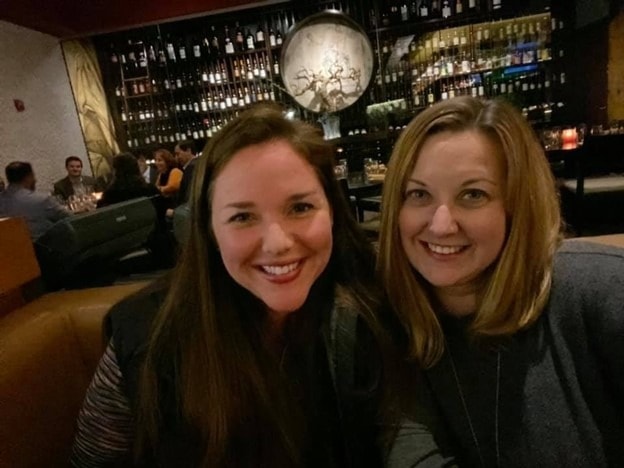/ News Posts / Has Your Flame Burned Out or Have You (Temporarily) Lost Your Spark?
Has Your Flame Burned Out or Have You (Temporarily) Lost Your Spark?
Reflect with a Promise to Reignite!
By NAfME Members Lori Schwartz Reichl and Jenny L. Neff
“At times our own light goes out and is rekindled by a spark from another person. Each of us has cause to think with deep gratitude of those who have lighted the flame within us.”—Albert Schweitzer
As the historic 2020–2021 academic year comes to a close, let’s examine this educational chapter: own the year, embrace the lessons learned, and remember the memories made. Take a few moments to reflect on the survival, success, and growth of your program, your students, and you.
Permission.
Give yourself permission to rest, reflect, and recharge! Grace may be needed, too, as challenges were presented to everyone, everywhere throughout the pandemic. Some things went as expected, others were disappointing, and perhaps some were even surprisingly successful. Know these were unique times and we learned many lessons that we may keep for the rest of our teaching tenures and potentially continue to develop and employ.
Reflect on the following moments and consider answering these introspective questions:
Pause.
Summer is the prime time to slow the pace, find quiet time, and recall our feelings and actions about the previous year.
- How did I survive?
- When did I stumble?
- How was I successful?
- How did I disconnect from work?
- How did my students survive?
- When did my students stumble?
- How were my students successful?
- How did I grow as an educator?
- How did I grow as a human being?
Purpose.
Reflect on your professional purpose in a variety of roles.
- What was my original purpose for pursuing this field?
- What was my original purpose for pursuing my current position?
- What is/was my purpose as a musician?
- What is/was my purpose as a teacher?
- How long do I plan to continue?
- Do I require some time off or need to step back a bit?
- Have I considered a change of position or leaving the profession? If so, how could I transfer or transition my skill set?
Philosophy.
Revisit what your core values are in your day-to-day teaching. Often, these can re-center us during difficult times. Return to that teaching philosophy you once wrote and reconsider its current principles. Set some time aside to reflect on your original ideas and to determine your current beliefs and any reasons for change.
- Has your philosophy changed during this unique time?
- How were your philosophical ideas reaffirmed or challenged?
- Has the pandemic lens re-prioritized your ideas or goals?
Partner.
Don’t go it alone, be resourceful. Consider colleagues in music, or elsewhere, who may want to collaborate with you on a resource, lesson, or performance. There has been a lot of online content created over the past year.
- What might complement and reinforce your teaching?
- Who could assist and where are your supports?
Possibility.
Consider approaching this step with an “anything is possible” attitude and narrow things down from there. Remember to shape, not define. It is not necessary to define our programs with rigid constraints, such as with “should-do’s,” and “must-do’s.” Do what works for your program, your students, and you moving forward.
- Are you creating problems or possibilities?
- What could the new academic year bring?
Peace.
Realize that you do not need to rush into things or comply with all that you view on social media, glean from webinars, or learn from others. These views and ideas may not express your beliefs or share your strengths.
- How can you find peace within yourself and be at peace with your program?
Personalize.
So often in education, we see prescribed programs and expectations. Contrarily, one of the things we’ve learned from the pandemic is the diverse needs of all involved. What works for one person does not always work for another. How will we personalize plans?
- What works for you?
- What works for your students?
- What works for your colleagues?
- What do you need?
- What do your students need?
- What do your colleagues need?
- How do we differentiate our teaching strategies and assessments now that we know more about our students?
- What does your program need?
- What or how much can you handle right now?
Practice.
As musicians, we often think of the word “practice” as a verb, but when we address our well-being, it is important to use and approach “practice” as a noun.
- What new practice have you created that supports your well-being?
- How can you retain these daily practices as you move forward?
Proceed.
Now that you’ve rested, reflected, and recharged, consider if, when, and how you’d like to proceed.
- If: Are you going to proceed in your current position or this profession?
- When: If not, when will you return?
- How: If not, how will you transition into retirement, a leave of absence, or a position or career change? Will you require additional training or education?
Plan & Prioritize.
In planning for the upcoming year, it will be crucial to prioritize our students’ social and emotional well-being. As part of this, we will need to sequence and structure lessons for maximum progress and student success. For many, programs will focus on rebuilding in ways we have not had to before or in recent years.
- What skills, knowledge, concepts, lessons, or units did we implement before the pandemic that will return as we move forward? What needs to change?
- How might we pair these with new skills or modes of delivery from pandemic teaching?
- How can we design or redesign our content so students can best meet the goals?
- What role will students play in their progress? What new opportunities will we design for students to work together or to lead?
- What new ideas do you have from pandemic teaching that will stay? How will you include them in your curriculum moving forward?
Persist.
More than anything, the pandemic taught us that our programs and professions are not linear. There are curves to maneuver, mountains to climb, and valleys to roll down at all stages of our careers. Passion, priority, and purpose may have centered us during this historic educational era, however, they may have also led us to new interests, dreams, and aspirations. Regardless of whether we choose to remain in our current position, experience another level or area of music, examine a different role in education, or explore a new professional path altogether, we must make a decision and persist. Our students deserve support from leaders who will mentor and motivate them. Our colleagues expect effort from teammates who will collaborate and unite. Furthermore, we owe it to ourselves to reignite our spark by using our skills and talents to keep our flames burning brightly in whatever method (or) path, and for whatever reason(s) we so choose.
Additional Resources:
Neff, J. (2018, April 20). How Does Your Garden Grow? Cultivating Your Students’ Growth in Music. National Association for Music Education.
Reichl, L. (2021, February 10). Lessons Learned from the Space Shuttle Challenger’s Explosion: Listen to Employees. National Association for Music Education.
About the authors:
NAfME member Jenny L. Neff, Ed.D., is Associate Professor of Music Education and Director of the M.M. and Summer Music Studies programs at The University of the Arts, after a 25-year career teaching public schools at various levels (K-12). She is an active presenter, adjudicator, clinician, conductor, writer, and guest blogger. Dr. Neff continues to enjoy customizing professional development for schools, engaging in research, working with students and educators, and advocating and creating pathways for success through the arts. Learn more at www.JennysCreativeEDge.com.
NAfME member Lori Schwartz Reichl is a champion of mentorship and motivation in education. Lori has parlayed her experience of establishing and maintaining music programs in various educational settings into a portfolio career of serving as an active adjudicator, clinician, conductor, instructor, speaker, and writer. Lori is the author of more than 70 articles and interviews for an assortment of education publications and the leader of countless professional development sessions designed to support K–12 educators and inspire collegiate students. Learn more about Lori at MakingKeyChanges.com.
Did this blog spur new ideas for your music program? Share them on Amplify! Interested in reprinting this article? Please review the reprint guidelines.
The National Association for Music Education (NAfME) provides a number of forums for the sharing of information and opinion, including blogs and postings on our website, articles and columns in our magazines and journals, and postings to our Amplify member portal. Unless specifically noted, the views expressed in these media do not necessarily represent the policy or views of the Association, its officers, or its employees.
June 9, 2021. © National Association for Music Education (NAfME.org)
Published Date
June 9, 2021
Category
- Social Emotional Learning
- Teacher Self Care
Copyright
June 9, 2021. © National Association for Music Education (NAfME.org)









